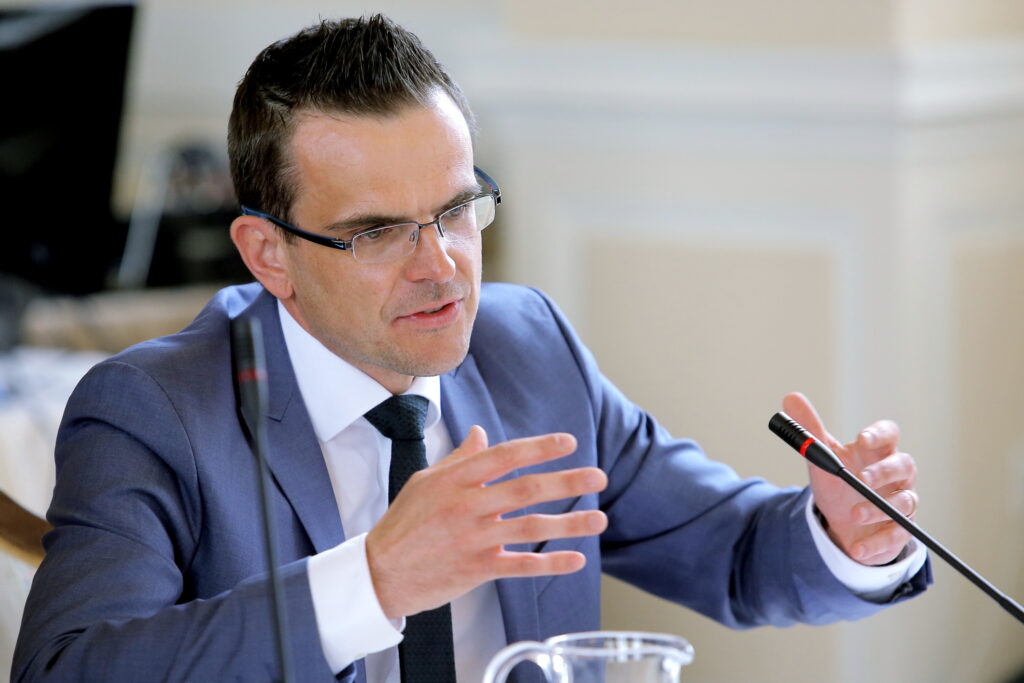“I wonder if anyone can answer the question of what is the name of the form of a political system in which ‘independent’, ‘impartial’ journalists, most often from the impeccable ‘public media outlet’, who, under the previous government mercilessly hammered this point of them being independent home, often below any level of professional journalistic activity, not only put away their critical pens and microphones under the new authorities but openly celebrate the triumph of the new authorities, which the journalists then, in all their ‘independence’ and ‘impartiality’, also join in the management of political functions. In doing so, the new Prime Minister is even openly inviting them to join his political ranks – and among them, in particular, supposedly the best among investigative journalists,” the professor of European law, Dr Matej Avbelj, wondered in his latest column for the Ius Info web portal.
Dr Matej Avbelj also answers his own question, at least in part later on in the column – namely, he explains that such a system is not, in fact, a democracy. Even if it calls itself that, there is no doubt that such democracy has a serious systemic problem. “There is no real democracy here, and there cannot be any real democracy unless there is a professional guild called journalism, both private and especially – at least in Europe – public, which, as part of its professional mission, ensures that, in conditions of maximum pluralism, using the professional instruments of the journalistic profession, the truth about public and those private matters that affect the public is sought, separately from the government and opposition politics of each time period,” Avbelj explains in his column.
According to Avbelj, the same is true for civil society: there is no democracy without a true civil society. “But a true civil society is not one that fraternises with the authorities simply because the authorities give it (or in order for the authorities to give it) public, taxpayers’ funds. Such civil society partnerships are a “contradiction in adiecto” in a democracy, confirming the politically hijacked character of society instead of its democratic character,” Avbelj warned, explaining that it does not help if these same media and civil society organisations, which no longer even try to hide the fact that they are not only aligned with the authorities in terms of worldview but are in fact becoming their soldiers while celebrating and praising this process under the disguise of “depoliticisation”.
Such a systemically depraved state of affairs has always been present in Slovenia
“We can only be concerned about the fact that under the conditions of such a “depoliticised” media, civil society and public space as such, two fair elections will be held this autumn, in which the people traditionally elect exactly the new face that is being served up by the described “depoliticised” media, in league with civil society of the same quality. But even this concern is superfluous this time. Fairness, too, is, after all, also in the service of what the media and their power tell you. Is it not?”
In his column, Avbelj wrote, among other things, that when political policy and depoliticised media, with fewer and fewer journalists and more and more open political activists, are implementing a depoliticisation of the system and all kinds of personnel, it is nothing but a purge and an Orban-style hijacking of the state. With this, he also stressed that “Orbanism,” as a form of autocracy, can exist on both the right and the left – depending on the country. The column in its entirety is available here – in Slovenian.
Sara Bertoncelj


